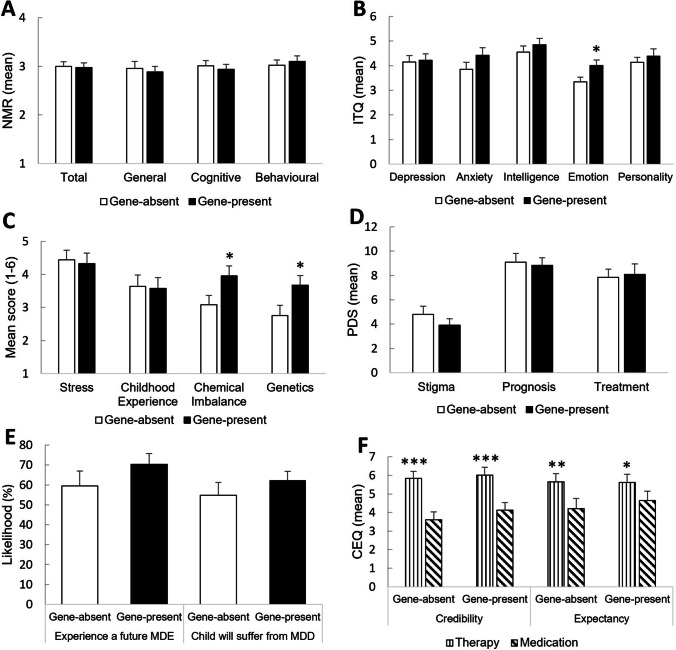Fig. 1.
Mean (+SEM) post-feedback perceptions of depression malleability, etiology, and treatment. (A) No group differences emerged within the general, cognitive or behavioral subscales of the Negative Mood Regulation Scale (NMR). (B) For the Implicit Theories Questionnaire (ITQ), emotions were rated as more malleable in the gene-present compared with the gene-absent group; however, there were no group differences for depression, anxiety, intelligence, or personality. (C) For perceptions of depression etiology, the gene-present group rated biological, but not environmental, contributions as significantly more likely to cause depression than did the gene‐absent group. (D) For the Perceptions of Depression Scale (PDS), there were no group differences in perceptions of stigma, prognosis, or treatment. (E) In the Future Scale, there were no group differences in perceptions about the likelihood of experiencing a future major depressive episode (MDE) or that their children would suffer from major depressive disorder (MDD). (F) For the Credibility and Expectancy Questionnaire (CEQ), both feedback conditions rated therapy as more credible and effective than medication. Statistical significance: *p < 0.05; **p < 0.01; ***p < 0.001

